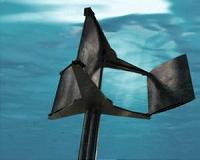 |
Wellington (AFP) May 26, 2011 In a legal first, Micronesia has challenged plans to expand a coal-fired power station in the Czech Republic, arguing its emissions will increase the climate change risks facing the Pacific nation. Environmental group Greenpeace said it was the first time a country whose survival was directly threatened by climate change had taken legal action against a development half a world away. Micronesia's Attorney-General Maketo Robert said his country -- which consists of more than 600 islands, many less than a metre (three feet) above sea level -- risked being swamped if global warming continued unabated. "The very real impacts of climate change are happening on our disappearing shores," he said in a statement. "This legal tool demonstrates that nations on the frontline of climate change are now supported by, and must prepare to invoke, the international law in making meaningful and more effective inputs into energy decisions." In recent years, Micronesia has linked extreme weather, coastal erosion and salination of its water table to climate change. It has also expressed fears that much of its 100,000 population could become climate refugees, forced to relocated as the seas rise. In response, Micronesia brought legal action in 2009 demanding the Czech Republic carry out an environmental impact assessment on plans to refit and extend the life of the Prunerov II power station in the country's north-west. The plant, one of Europe's largest coal-fired power stations, was originally scheduled to close in 2020 but will remain open until 2035 and increase its output under the plans. While Micronesia's legal action did not try to halt the Prunerov II expansion, it sought emission abatement measures to minimise the carbon dioxide pollution blamed for global warming. Using a legal device called a Transnational Environmental Impact Assessment, which has previously been used only by neighbouring states, the Pacific nation succeeding in forcing an independent review of the Czech plans. Greenpeace lawyer Jasper Tuelings said the legal action set a precedent for other small countries that were struggling with climate change to push for more environmentally responsible development in the West. "This concept can be replicated by other countries against other projects," he told the Australian Broadcasting Corporation on Thursday. "So we believe this tool is an attractive one for vulnerable countries to come face to face with the Western decisions on energy use." Tuelings outlined the legal theory behind behind the action to a climate change conference in New York this week, encouraging other climate-affected countries to follow Micronesia's lead. The Czech government's response to the environmental review prompted by Micronesia is expected in the next few weeks, Greenpeace said.
Share This Article With Planet Earth
Related Links
 Hydro Alternative Energy Announces MoU With Republic of Benin
Hydro Alternative Energy Announces MoU With Republic of BeninJupiter FL (SPX) May 25, 2011 Hydro Alternative Energy has announced that in continued furtherance of its previously announced joint venture with MRS Holdings Limited ("MRS"), a subsidiary of HAE's and MRS' jointly owned corporate entity, Natural Energy Solutions, Inc. (collectively "NES"), has recently entered into a Memorandum of Understanding ("MOU") with the Republic of Benin to develop one or more hydrokinetic energy pr ... read more |
|
| The content herein, unless otherwise known to be public domain, are Copyright 1995-2010 - SpaceDaily. AFP and UPI Wire Stories are copyright Agence France-Presse and United Press International. ESA Portal Reports are copyright European Space Agency. All NASA sourced material is public domain. Additional copyrights may apply in whole or part to other bona fide parties. Advertising does not imply endorsement,agreement or approval of any opinions, statements or information provided by SpaceDaily on any Web page published or hosted by SpaceDaily. Privacy Statement |